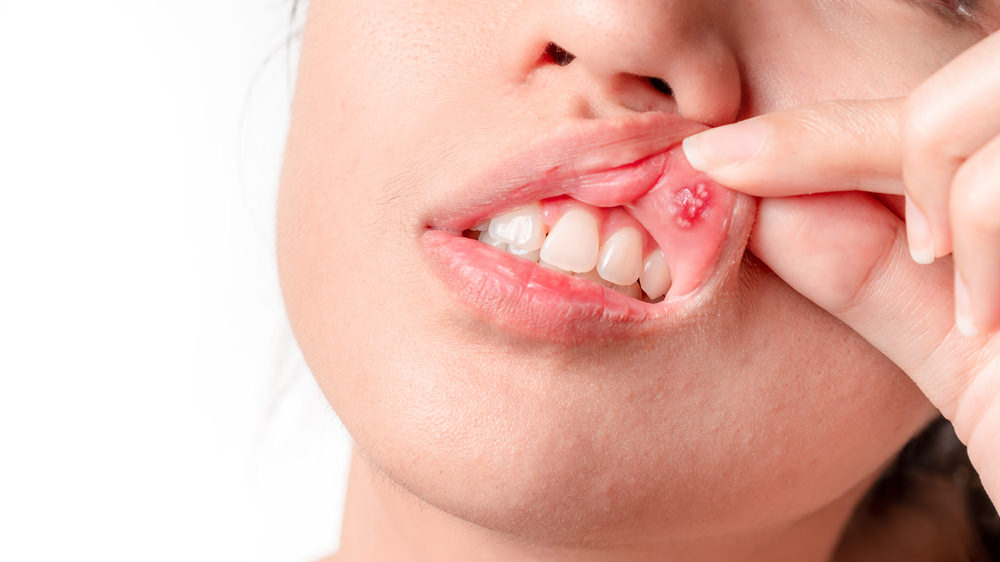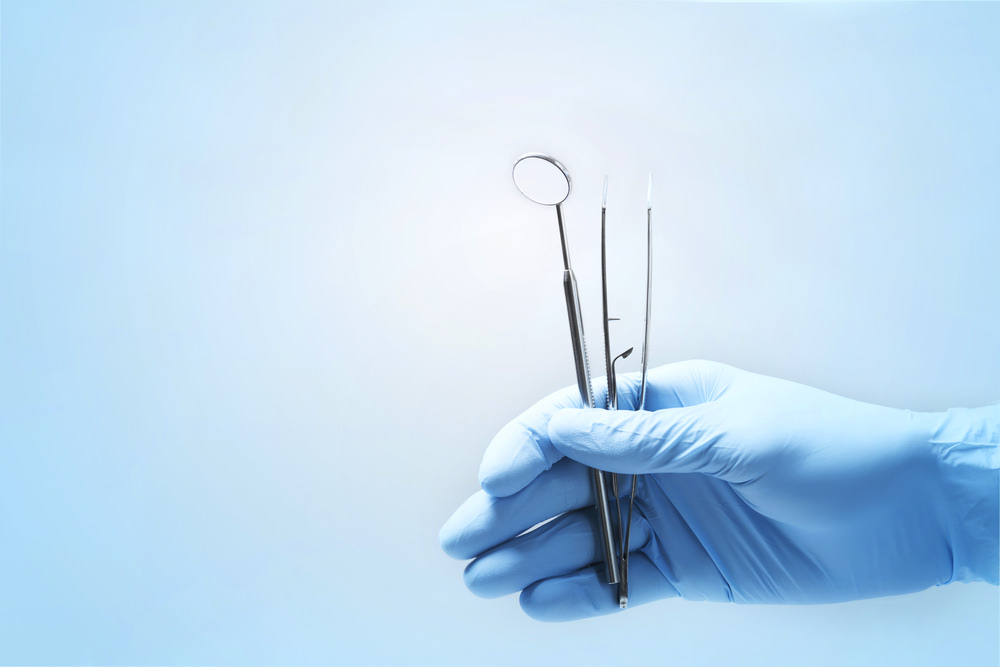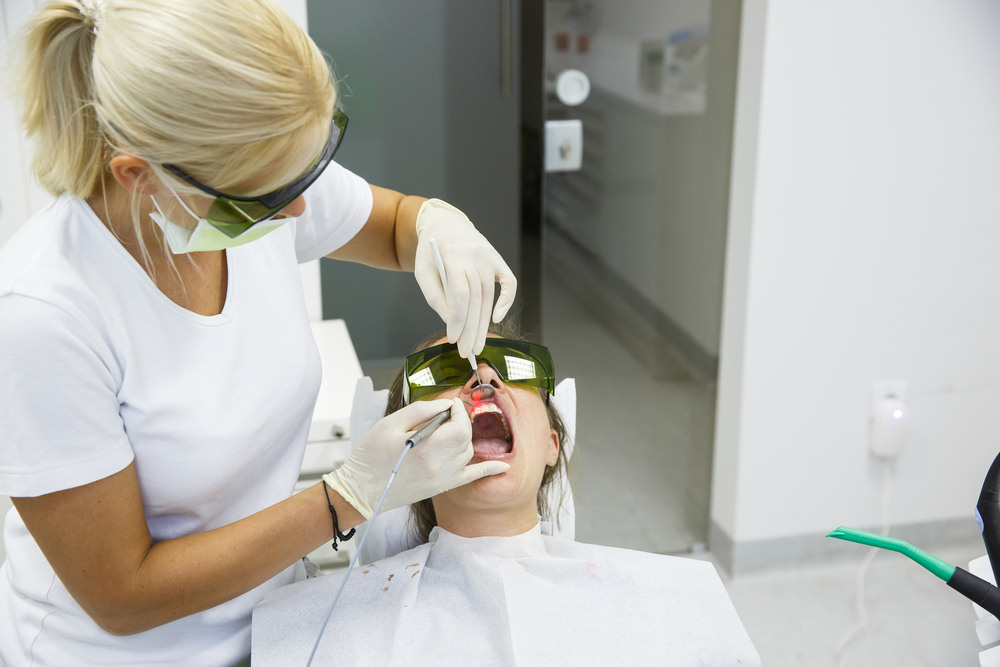My Mouth Ulcer Won’t Heal – Reasons Discussed!
A common question that a Dentist gets asked is – why won’t my mouth ulcer heal?
A mouth ulcer that won’t heal may be a sign that you have an underlying and very serious medical condition.
While most ulcers are not dangerous and resolve themselves within 2 weeks without the need for treatment, you should see a dentist immediately if your ulcer has not healed after 2 weeks, or keeps reoccurring.
Today I will cover preventive and fast treatments for mouth ulcers, what they are, how you get them, easily or otherwise, and what can be done to treat them if they won’t go away.
Let’s get straight into it.
Is There Any Way to Prevent Mouth Ulcers?
In short, yes.
There are many things you can to do prevent yourself from getting mouth ulcers, including:
Eat a diet full of healthy foods, containing sufficient amounts of all necessary nutrients.
You can do this by eating the foods listed below every day;
- Good, natural foods, including non-starchy vegetables.
- Foods with iron and Vitamin B12, such as eggs, meats, yoghurts with probiotics, whole grains, and alkaline-forming fruits, NOT acidic fruits.
If you drink a lot of alcohol, contemplating reducing the amount you drink.
Drinking a lot of water, and look at taking a multivitamin.
Make sure that you properly monitor and effectively control all your underlying medical troubles as well as is practicable.
Maintaining healthy body weight and wear sun protection on your lips.
Lastly, but perhaps what holds the most importance of all, make sure that you continue to uphold good dental hygiene.
Keep your mouth clean by ensuring that you:
- Floss every day.
- Be gentle, not too hard, when brushing your teeth. Do this after every meal.
- Choose the toothbrush bristle that is correct for you and your teeth (i.e. soft, medium, and so on). You can talk to your Dentist if you need help choosing this.
- Take care when brushing, so that you do not let the toothbrush slip.
- Steer clear of toothpaste that has the ingredient sodium lauryl sulphate.
- Use an alcohol-free mouthwash containing chlorhexidine.
- If you wear dental or orthodontic mouth appliances that have spikey rims (such as braces), then ask your Dentist for wax that you can use to coat them with.
- Regularly attending your dental check-ups.
By performing the above actions, you will not only help stop yourself from getting mouth ulcers but also many other ailments.
Can You Heal a Mouth Ulcer Fast?
Yes, a mouth ulcer can be healed quickly. You can rid yourself of the ulcer as fast as is possible by having your Dentist use their dental laser to cauterise the ulcer.
Research has shown that this action, which is known as chemical cautery, can lessen the time they take to get better by approximately 1 week.
Cautery involves your Dentist:
- Potentially applying a topical solution to the mouth ulcer, then
- Using a dental laser to burn, scorch, or terminate the tissue in your mouth.
In an instant, this can notably reduce the pain you feel.
The laser used to demolish the tissue the mouth ulcer has impaired will also revitalise the cells, getting them turning over again.
This will accelerate the time it takes for your ulcer to heal.
So, if you want a quick fix, talk to your dentist about whether this is the best choice for you.
You can also ask your Doctor or Dentist for advice about which topical products will work best for you on your mouth ulcers.
What is a Mouth Ulcer?
You may also know a mouth ulcer by the name “canker sore” or “aphthous ulcer”.
It is when part of the delicate tissue that lines the inside of your mouth (known as your “mucous membrane”) becomes damaged or starts to erode.
The ulcer looks like a small blister and is grey in colour. It can be within your mouth, such as on your tongue, on the inside of your cheek or lip, or the bottom of your mouth.
As it is a sore, it will cause you pain, particularly when you are talking, eating, drinking, or brushing your teeth.
3 Different Types of Mouth Ulcers
There are 3 different types of mouth ulcers that you should be aware of. I’ll run through each below;
Minor Ulcers
These are the most typical type of mouth ulcer. They span in size, from 2mm to 8mm in width.
You may only get 1, or they may cluster.
In general, they are not overly painful, and will heal in approximately 2 weeks.
Major Ulcers
These are not as common as Minor Ulcers. They are also bigger – usually ranging from 5mm upwards, but are a haphazard shape.
They may also be elevated, and create a hole that is further embedded into the tissue than that of Minor Ulcers.
They may come as 1 only, or as 2.
They can be extremely painful, especially when you eat or drink.
They will last longer, anywhere from 2 weeks up to a few months.
When you eventually do see them come to an end, it is to be expected that they will most likely leave scar tissue in their wake.
Herpetiform Ulceration (HU)
These are a subtype of mouth ulcers, called “Herpetiform” as they look like a cold sore, which is related to the herpes simplex virus.
But, please note that they do not have anything to do with this virus.
Instead, they can transpire when several lesions amalgamate and create a big ulcer that is a haphazard shape.
They have a tendency to come back rapidly, as it looks as if once you have this condition it will not recover.
How Do You Get Them?
Exactly what causes mouth ulcers is yet to be discovered, and it seems that it differs from person to person.
However, there are a number of triggers that have been identified, that have a habit of irritating mouth ulcer.
For more information on this, please see the sub-heading “Can You Contract a Mouth Ulcer Easily? How?”.
What to do When Mouth Ulcers Keep Coming Back?
In most cases, mouth ulcers aren’t dangerous. They will heal on their own within roughly 2 weeks, without the need for dental treatment.
But on occasions, you may get an ulcer that:
- Is oddly large.
- Keeps on spreading.
- Is extremely painful.
- Gives you a fever.
- Lasts more than 3 weeks without healing, and/or
- Is recurrent.
It is highly important that you seek the advice of a Doctor or Dentist immediately if:
- Your ulcer/s has not healed after 2 weeks.
- The ulcer/s are recurrent, or
- The ulcer/s are getting in the way of your normal day to day activities.
This is particularly the case if you drink a lot of alcohol regularly, and smoke cigarettes.
It is also important to note that recurrent mouth ulcers are those that come back frequently but are not necessarily always in the same spot.
The recurrent ulcers may be a signal that you have a more serious disease that requires urgent medical treatment, so again it is highly important that you have this looked at by a medical professional.
Your Dentist can detect them with a visual examination, and in some cases, you may need tests to check for other medical conditions, such as:
- Blood tests if they suspect you may be deficient in a nutrient, or have an inflammatory condition.
- A biopsy if they are not able to establish what is causing your mouth ulcer/s, or if the ulcer/s do not respond to the usual treatment.
Some of the diseases that may be found through the visual examination of your mouth ulcer/s and these tests include health conditions such as:
- Celiac disease.
- Inflammatory bowel disease.
- Diabetes.
- Mouth cancer.
- HIV/AIDS.
- Cold sore virus.
- Chickenpox.
- A deficiency in iron, folate, or Vitamin B12.
- Crohn’s disease.
- Lupus, or
- Reactive arthritis.
So, for instance, your Dentist can clarify that your problem is certainly a mouth ulcer, and not a tooth abscess, or a rare type of oral cancer.
When they have determined that it is undoubtedly a frequently recurrent mouth ulcer, they will also be able to prescribe you treatment.
Their treatment will help to minimise your swelling and lessen the pain you are feeling.
They will generally contain the steroid dexamethasone, which helps to reduce both pain and swelling, or lidocaine, a numbing medication that assists with lessening pain.
It will be in the form of things such as:
- Prescription medications – You may get an antimicrobial ointment, liquid, paste, cream, or gel.
- Medicated mouthwash – If you have more than one mouth ulcer, using mouthwash might be an easier solution than putting a gel on each and every sore.
Can You Contract Mouth Ulcers Easily and How?
Unfortunately, yes, you can.
There are several common everyday things that have been identified as triggers, or things that will aggravate and easily spark off a mouth ulcer.
These include:
- Giving up smoking.
- Eating citrus or acidic fruits, such as pineapples, grapefruits, oranges and lemons.
- Foods that are known to ‘set off’ or trigger the ulcer, particularly coffee and chocolate.
- Foods that are rigid and tough, such as chips or nuts.
- Some foods that are spicy, or
- Any foods that are too hot, and burn your mouth.
- If you accidentally bite your tongue or the inside of your cheek.
- If you wear braces, dentures that are poorly fitted, or any other dental appliances that could be rubbing up against your mouth and gums.
- A substandard, faulty dental filling.
- If you are feeling anxious or emotionally stressed.
- If you do not get enough sleep and so are extremely fatigued.
- The changes your hormones go through if you are undergoing puberty, menopause, or are pregnant or menstruating.
- The way your body reacts to some medications, such as beta-blockers and painkillers.
- Your genetics.
- If you are insufficient in certain nutrients, or deficient in crucial vitamins, especially Vitamin B12, zinc, folate, or iron.
- Specific medical conditions, such as gastrointestinal diseases including Celiac or Chrohn’s disease, autoimmune disorders, or oral cancer.
- If your immune system has become weak.
- Slight mouth injuries that have occurred from;
- Dental work, brushing your teeth hard rather than gently.
- Slipping with the toothbrush when brushing your teeth and damaging yourself.
- Damages from playing sports.
- Unintentionally biting yourself, such as talking whilst eating and nipping your cheek or lip.
- Aggravations from the use of toothpaste or mouthwash that has Sodium Lauryl Sulfate or any other potent antiseptic.
- If you have an allergic reaction to bacteria in the mouth.
- Viral infections (such as cold sores).
- Fungal infections.
- Bacterial infections.
- Skin rashes in the mouth, such as lichen planus, and
- If you regularly rub your mouth up alongside:
- Skewed teeth (such as an underbite).
- Sharp, pointed teeth, or
- Broken teeth.
To stop your mouth ulcers from coming back, it is a good idea to stay as far away as you can from these known triggers.
For instance, you could talk to your doctor about whether you could change any medications that you are taking that have previously given you mouth ulcers.
It is important to note though those mouth ulcers are not contagious.
Meaning, they are not easy to give to others – you CANNOT pass them on by doing things with another person such as:
- Kissing.
- Coming into close contact with them, or
- Sharing your personal goods, such as a water bottle or cup with them, etc.
There is absolutely no way that you can give mouth ulcers to anyone else, so you do not need to worry about this.
Conclusion
This article does contain a lot of great tips, but it is no substitute for seeing a healthcare professional.
If you are in any doubt about a recurring mouth ulcer, please see your Dentist for more advice.
But if you would simply like to know more information about mouth ulcers in general, such as your treatment options, you can read my other article here.
By Dr. V
Created at May 13, 2021, Updated at January 25, 2025





